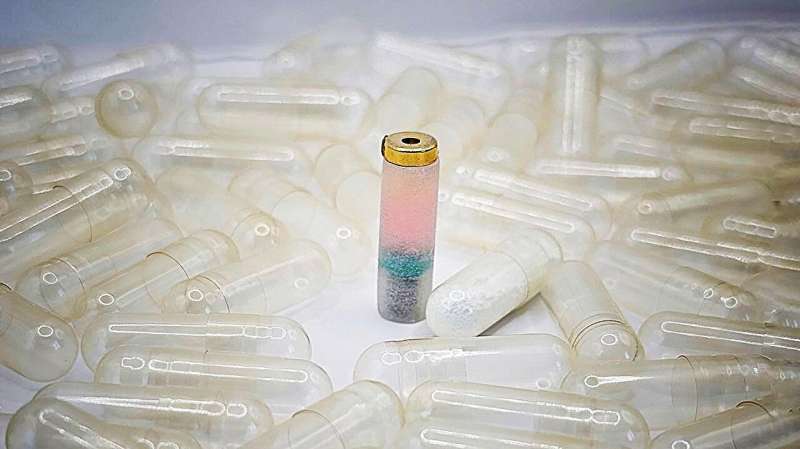Soft tissue injuries of the gastrointestinal tract, like ulcers or hemorrhages, can currently be treated only with some form of surgery, which is invasive and may not result in permanent repair. Bioprinting is emerging as an effective treatment that deposits biocompatible “ink”—often made of natural polymers derived from seaweed—directly over the site of tissue damage, creating a scaffold for new cell growth. But like traditional surgical tools, these kinds of bioprinters tend to be bulky and require anesthesia.
At the same time, “untethered” technologies are being developed to perform medical interventions without a physical connection to external equipment. For example, ingestible “smart capsules” can be guided to drug delivery sites using external magnets. But these devices are designed to travel through liquids, and their movements become unpredictable when they touch the tissue wall.

